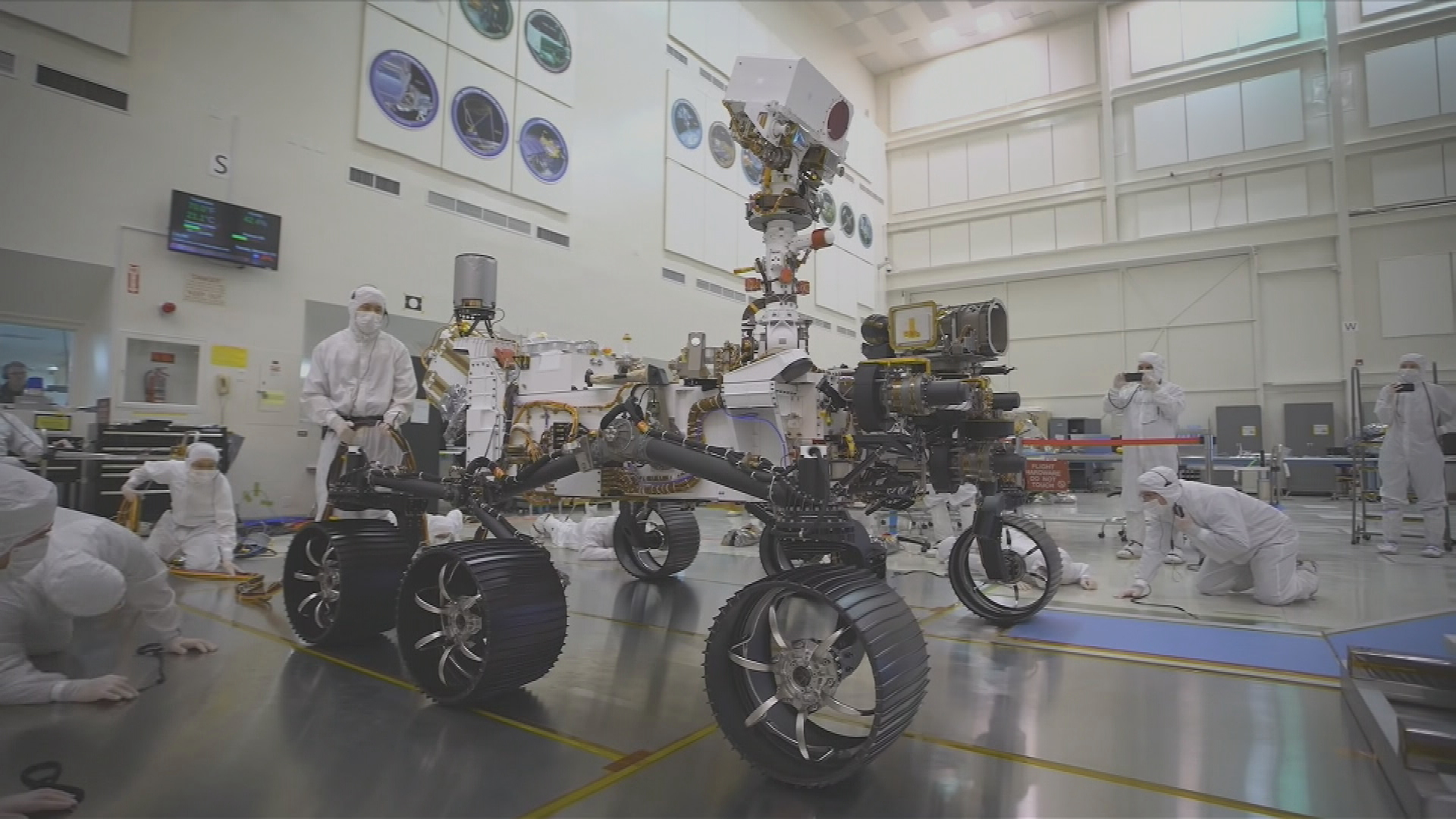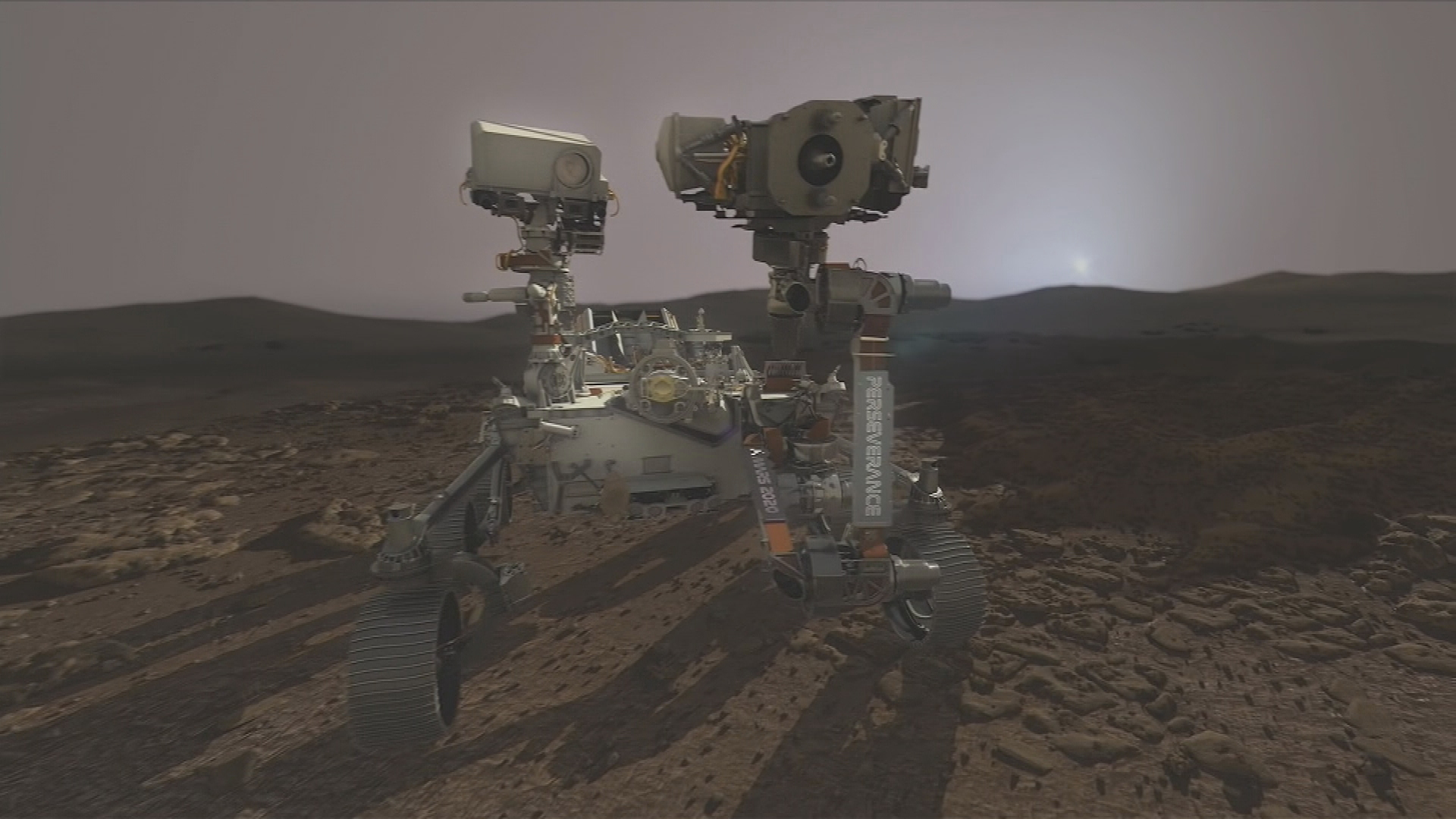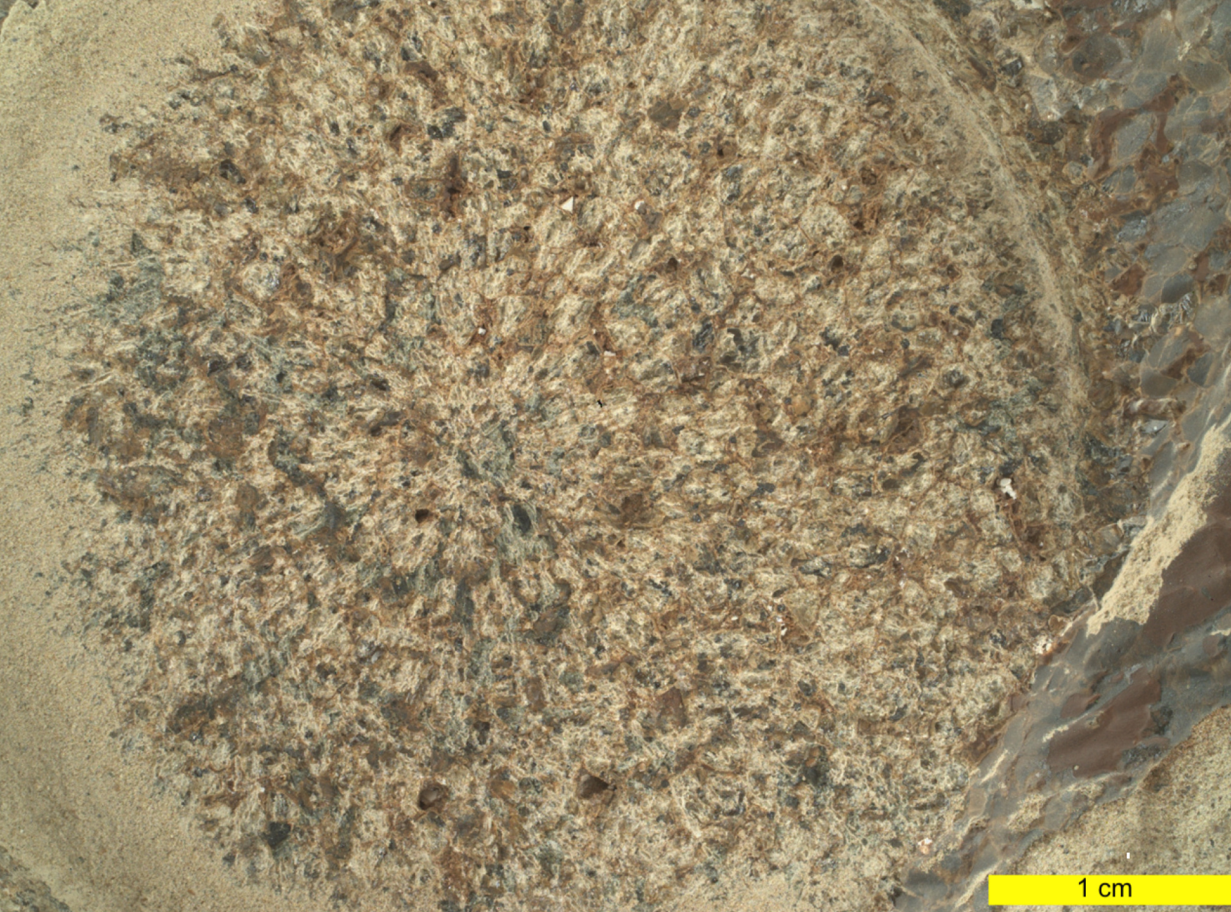Queensland researchers working with NASA believe they're a step closer to unlocking the history of Mars after making a startling discovery on the red planet.
Researchers from the Queensland University of Technology working on NASA's Perseverance rover mission have been tasked with analysing photographs captured inside a martian crater that are challenging scientists' view of the planet.
Dr David Flannery, a planner for the NASA Perseverance mission, said the crater held a lake billions of years ago and so researchers expected to find sedimentary rocks inside.
READ MORE: 'Staggering' record meth shipment likely from Middle East, police say

Instead, the rocks were found to be igneous, with scientists hoping the find will provide new clues into whether there was ever life on the planet.
"That was a bit of a surprise but also really cool because these are the types of rocks we can date and by dating these igneous rocks once we've brought them back to earth, dating them puts the whole crater in context so we can know how old those potentially habitable environments are," Dr Flannery said.
"Jezero crater is a really cool place to go to look for evidence of past life because we can see from orbit these rocks that were deposited under water."
The finding could also help date other sections of Mars and help scientists understand more about the wider solar system.
Two follow-up rover missions will be tasked with bringing the rock samples back to Earth.
"It's really exciting and as Australians, we're already punching above our weight in this area," Flannery said.
READ MORE: Inquiry launched into Morrison's secret portfolio scandal
While the planet's cold and dry conditions aren't currently suitable for life, Flannery said the new research may "help us understand when those conditions changed".
"NASA plans to bring humans to Mars in the not too distant future."
READ MORE: Gangland widow Roberta Williams sentenced after TV producer assaulted
Source: 9News





